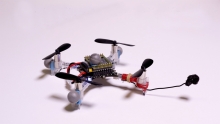McGill Newsroom
Universities announce their 2016 Schulich Leader Scholarship winners
Ontario high school student Abtin Ameri and Mana Moshkforoush of British Columbia have been named McGill University’s recipients of the prestigious Schulich Leader Scholarships.












